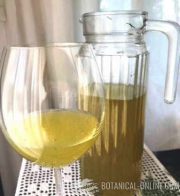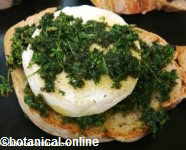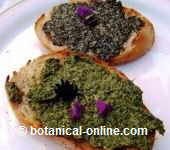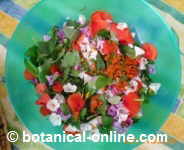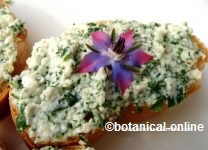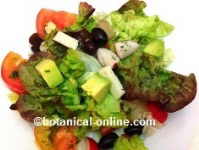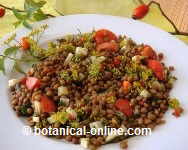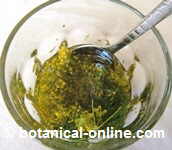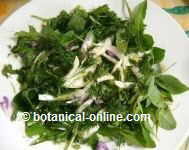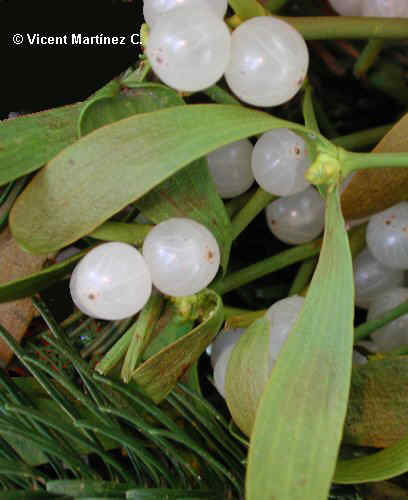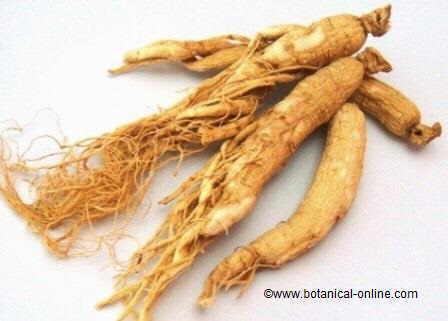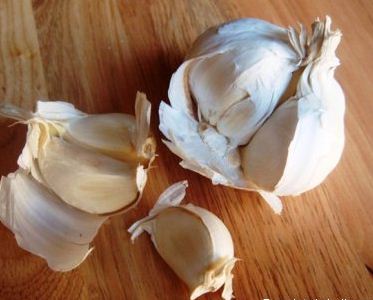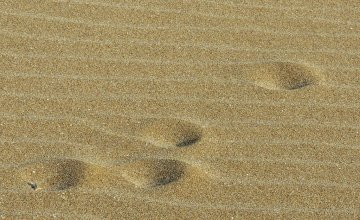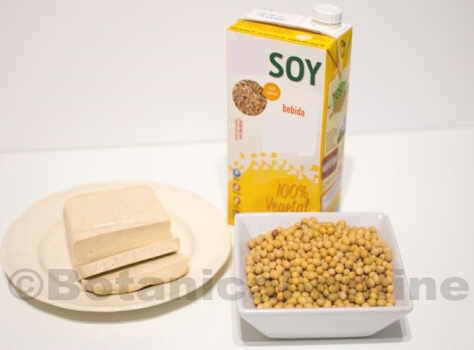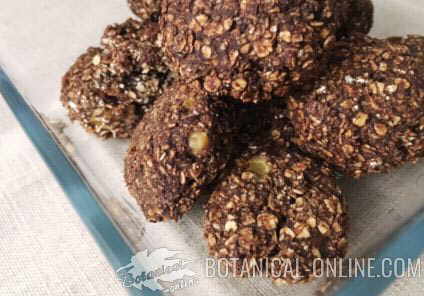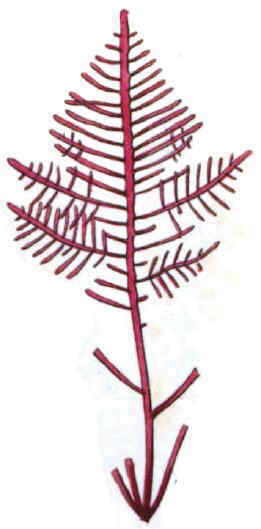Contents
How to use fennel in the kitchen
NUTRITIONAL VALUE AND RECIPES WITH FENN
Fennel in the diet
Fennel (Foeniculum vulgare) is a plant that has been consumed for many years as an aromatic spice. Its roots, leaves, flowers and fruits can also be consumed.
The plant grows on the edges of roads, meadows and fields. It is distinguished by its leaves with filiform leaflets and their yellow flowers, which grow in an umbel
It belongs to the umbelliferae family, like cumin, anise or celery. These plants have in common the shape of their typical flowers and the anethole present in their essential oil, which gives them an aniseed aroma.
Nutritional value of fennel
Fennel is one of the most common aromatic herbs in European cuisine. The bulbs are also consumed as a vegetable.
Traditionally, umbelliferae plants such as fennel are mainly attributed with carminative and galactogogue properties. That is, its aniseed essence helps to eliminate gas from the intestine. It is used as a digestive plant and remedy against flatulence.
Galactogogue properties make reference to that, traditionally, the use of these plants has served to stimulate milk production during lactation.
What part of fennel is consumed?
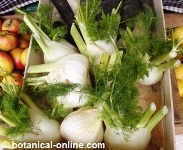
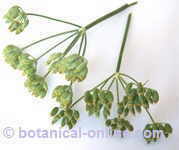
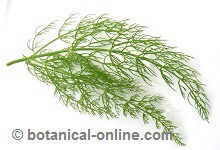
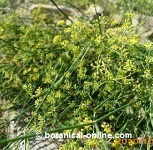
- Fennel leaves: Tender shoots are consumed, that is, the leaves that sprout, of a light green color. These are crushed and added to salads, mixed in vinaigrettes, finely chopped and mixed with cheese to prepare a homemade fine herb cheese, or in herbal butters, …Typically, fennel has been used to prepare fish broths and other preparations with seafood.
- Fennel flowers: In spring, they are crushed and added to salads, dressings, … They have an aniseed flavor that combines very well with spring salads.
- Fennel fruits: They can be consumed fresh in salads, but to a lesser extent than flowers, because they have a more intense flavor. The high consumption of fennel fruits has produced nausea and vomiting due to its high concentration of essential oils, rich in anethole and estragole. Nuts are an ingredient of some curries and masalas (mixtures of oriental spices).
- Fennel bulbs: They are tender buds that grow under the soil on cultivated species
Precautions with the use of fennel
- It should be noted that many plants of the fennel family contain phototoxic oils (furocoumarins), that is, it is not recommended to take sun baths after consuming this plant.
- Pregnant women should not consume the fruits of fennel: These are rich in apiol, an abiotic component.
- Fennel seeds are very rich in essential oil and should be consumed in moderation, since there have been cases of nausea and vomiting with their consumption.
- Fennel can be grown in the garden or consumed as a wild plant. In the latter case, if the plant is not known, it should not be collected to avoid possible poisoning.
- Fennel plants should not be collected near roads, roadsides, rivers where animals graze, or near crop fields, places that may be contaminated by pets, cars, dust, livestock or pesticides.
FENNEL RECIPES
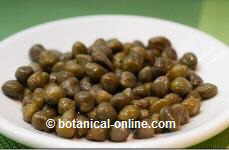
Preserved capers

